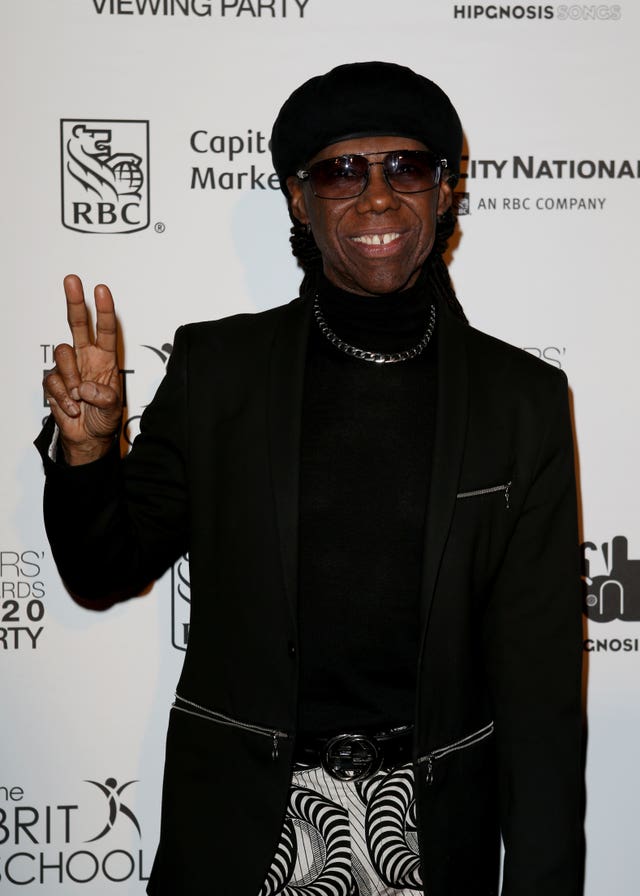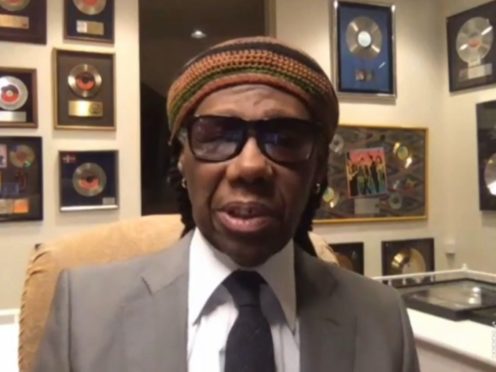Chic frontman Nile Rodgers has advocated for more transparency around the “unfair system” currently in place between streaming platforms and musicians.
The musician, 68, was speaking to MPs as part of an inquiry into the impact of streaming giants such as Spotify and Apple Music.
He also told the Digital, Culture, Media and Sport Committee the problem should be fixed now, because profitability of streaming is about to experience “explosive growth”.

Appearing via video from the US, he said: “Let’s pay these people what they should have been making all along and we are going to be one big happy family.”
He said the finances of streaming are shrouded in secrecy, adding: “We don’t even know what a stream is worth and there’s no way you could even find out what a stream is worth, and that’s not a good relationship.”
Rodgers added: “Artists and writers are not remunerated equally. They do not get their fair share of the pie.”
He said there needs to be greater transparency about how the system works.
Talking about a “re-evaluation of the relationship” between musicians and streaming platforms, the American musician said: “As much as I love the convenience, the fact is the system is unfair.
“We need to have transparency and if you can help us make this happen, things would change and I guarantee you, two years down the road, everyone’s going to be fine and happy because I’m telling you we are going to experience explosive growth.”
He said the UK could be a “leader” in changing the music streaming model.
“This can now be a great paradigm shift for songwriters and artists all over the world,” Rodgers told the committee.
He said streaming companies should have to buy a licence to use an artist’s material and each stream should not be treated as an individual sale.
He added that this would allow artists to take a bigger cut of the fee from streaming companies.
Rodgers, who is behind disco hits including Le Freak and Everybody Dance, is the latest high-profile figure to give evidence about their perspectives as performers.
Radiohead guitarist Ed O’Brien, Elbow frontman Guy Garvey and singer-songwriter Nadine Shah appeared previously during the first session, held as the DCMS looks into how the streaming model has affected artists and record labels, following increased scrutiny prompted by the coronavirus pandemic.
When Rodgers was asked why he decided to give evidence to the committee, he said: “I feel that the UK is one of the most important musical engines in the world.”
.@nilerodgers says rights should revert to the artist. The running joke was that music was the only business where after you pay off the mortgage for the house, they still own the house. The mess needs to be cleaned up. pic.twitter.com/YbJlIvaOJI
— Digital, Culture, Media and Sport Committee (@CommonsDCMS) December 8, 2020
Rodgers added that he is “very, very fond of the UK”.
He said musicians are “really kept in the dark” about the worth of their output on streaming services.
He said: “It is not the streaming services that we have the problem with – it is fantastic that they can distribute our product in such an effective, wonderful way and keep a great digital trail.
“It is the labels that are perpetrating this and we need to really address this.
“If you have the power to do it – because we don’t – we would be eternally grateful.”
Rodgers added that record labels are seeking to hide the “humongous difference” between what a stream is worth and what they are paid.
“When you see the disparity, it’s just absolutely ridiculous,” he said.
